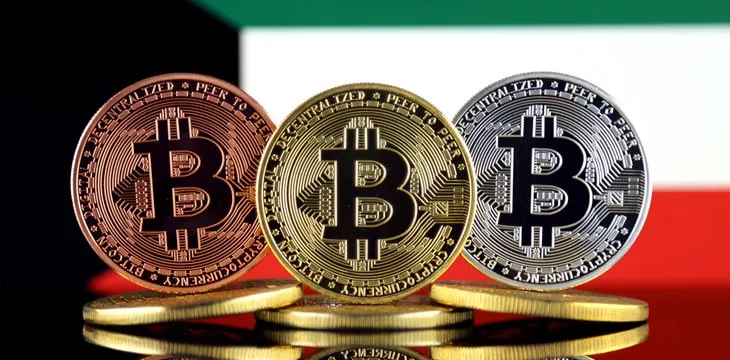|
Getting your Trinity Audio player ready...
|
Kuwait has joined the list of countries that have totally banned digital currency transactions following a July 18 announcement by its primary financial regulator.
The country’s Capital Markets Authority (CMA) disclosed in a circular that transactions involving digital currencies like BTC and Ethereum (ETH) have been banned. The ban extends to the issuance, investment, and mining of digital assets by residents, according to the government agency.
Kuwait’s blanket ban on digital assets precludes local regulators from issuing operational licenses to firms with digital currencies as their main object clause.
The ban is the government’s latest attempt to crack down on money laundering rings operating in the country. Kuwait is keen on avoiding the Financial Action Task Force’s (FATF) gray list and is going the extra mile to comply with its recommendation.
Currently, FATF recommends that countries apply the “Travel Rule,” a set of guidelines requiring digital currency exchanges to submit all details of a digital currency transaction exceeding a certain amount to regulators. The FATF is yet to issue a recommendation to countries to impose a blanket ban on digital currencies, but Kuwait appears to have adopted a hard stance toward the asset class.
“Securities regulated by the Central Bank of Kuwait and other securities and financial instruments regulated by the Capital Markets Authority are excluded from this prohibition,” said the CMA in its announcement.
The regulator noted that digital currencies do not have the backing of the law, and their usage exposes investors to grave risk. The circular prescribed penalties for violating the ban and warned investors to be wary of dabbling in the unregulated asset class.
“It is not linked to any asset or issuer, and that the prices of these assets are always driven by speculation that exposes them to a sharp decline,” read the warning.
The warnings have been circulated by a group of Kuwait’s regulators, including the Central Bank of Kuwait, the Insurance Regulatory Unit, and the country’s Commerce and Industry Ministry.
Blanket ban or strict regulation
Countries are split over the decision of imposing a blanket ban or rolling out tight regulations. For instance, China banned its thriving digital currency ecosystem after several attempted at regulations—a move that changed market dynamics.
The collapse of FTX and the spill-over effects into the broader financial system have forced the hand of several countries to launch stiff regulations for their local industries. Thailand, Indonesia, and the EU countries have since issued several regulations guiding digital currency promotions, staking, custody, and leverage.
Watch BSV Stories – Episode 4: The Middle East’s Blockchain Race

 07-14-2025
07-14-2025 





